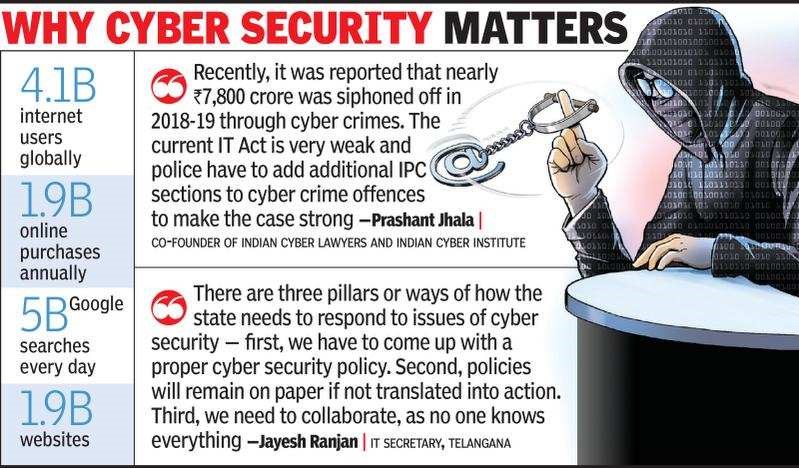



India’s digital transformation — powered by affordable Internet, digital banking, and e-commerce — while enhancing convenience and inclusion has also created a fertile ground for cybercrime.

Copyright infringement not intended
Picture Courtesy: Getty images
Increase in cyber frauds with increase in internet, e-commerce and net banking services.
The digital economy is a global network of economic activity and transactions that are enabled by information and communication technologies (ICTs), such as the internet, mobile devices, and cloud computing.
|
Digital Economy |
Traditional Economy |
|
Based on digital technologies, internet, data, and online platforms. |
Based on physical goods, services, and offline interactions. |
|
Driven by data, algorithms, AI, and cloud computing. |
Driven by manual processes, machinery, and physical resources. |
|
Faces issues like data privacy, cybersecurity, platform monopolies. |
Faces issues like labour laws, physical logistics, trade barriers. |
|
Requires digital literacy, coding, data analysis, AI skills. |
Requires manual skills, manufacturing, traditional services. |

|
Practice Question In the context of India’s rapidly growing digital economy, discuss the key measures required to safeguard it against emerging cybersecurity threats. Also, highlight the role of regulatory frameworks and public awareness in ensuring a secure digital ecosystem. (15 marks, 250 words) |
Economic activities driven by digital technologies, including digital payments, e-governance, e-commerce, fintech, digital infrastructure and data driven services.
It provides more control over their personal data, and consent-based data processing.

© 2026 iasgyan. All right reserved